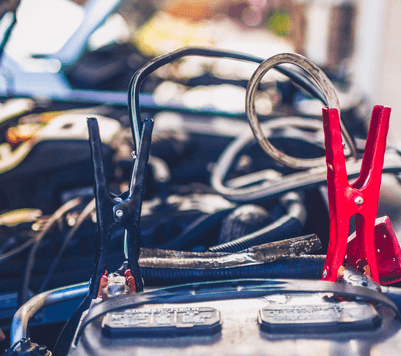6 Reasons Your Car Might Not Jump-Start: Troubleshooting Guide
Auto Shops Located in: Chapel Hill, Durham, Taleigh, Apex, and Cary North Carolina

If you own a car, you’ve likely experienced trouble at one point or another getting it to start. No matter how many times you push the start button or how hard you turn the key, your car just won’t respond. As frustrating as this can be, especially when you have important plans, most know to call a friend or pull out a battery pack and jump-start the car. Sometimes, however, these tried and true methods don’t work, and you’ll be stuck with a car that won’t start.
While a car that won’t jump-start can be frustrating, the problem is usually due to a few solvable issues. When you want to protect your car and know what could be causing the reason for it not jump-starting, review the six most common reasons a car won’t jump-start.
1. The Battery is Dead or Damaged
The car battery is arguably the hardest working part of the vehicle. Each day, it powers up your car and gets you to where you’re going. Unfortunately, it won’t last forever, and at some point, it will die and need to be replaced. When it hasn’t died due to standard wear and tear, it could contain a defect or short circuit. If your starting system is working just fine, then replacing the battery should have you back cruising down the road.
2. The Alternator Has Gone Bad
If the jump-start fails, it’s possible that the alternator is the real issue. This component returns energy to the battery in an effort to replace the power the battery loses when it starts up the car. When the alternator begins failing, it exhibits symptoms similar to that of a dying car battery.
Signs that your problem is the alternator include the battery light making an appearance on the dashboard or dimming car lights. Before you rush out and get a new car battery, have a professional take a look at the alternator.
3. You Need New Jumper Cables
When purchasing jumper cables, don’t skimp on the price. You want a thick set of cables that can carry a sufficient current to your battery. The length of the cables is also important, as the longer they are, the more internal resistance they produce. If your cables are too long, they may not be able to transfer enough power to your car.
A quality set of cables will be the right length and thickness to give you the power you need. Most vehicles will need four or six-gauge cables that run around fifteen feet long. If you need advice about the right cable to buy, make sure to ask your local mechanic for help to receive expert guidance.
4. You Have Loose or Corroded Battery Terminals
When your battery terminals are covered in corrosion or aren’t tightly connected, these elements will obstruct the power flow. For example, loose cables won’t be able to carry the necessary electrical current to the starter, and corroded battery terminals can also disrupt the proper flow of energy. Instead of driving with loose or corroded battery terminals, you can have a mechanic clean up the corrosion with a wire brush or tighten the cable clamps. After they clean off the corrosion and tighten the clamps, the car should start again.
5. The Neutral Safety Switch Is Out
If you have a manual transmission car, you won’t have to worry about this issue. But for those with automatic transmissions, beware. This switch is designed to prevent the car from starting unless it’s in park or neutral. When this switch goes bad, it doesn’t send the right information to the engine’s computer, and you’re unable to move.
Your mechanic can determine if this is really the problem, and if so, they can make the proper repairs.
6. Something Other Than the Starting System Is Wrong
It’s very possible that none of the above-mentioned issues are the source of your pain. Your starting system may be in great condition, but a bad fuel pump or clogged fuel filter will also cause the same problems.
One of the most obvious causes is if the car is out of gas. But it could also be worn-out spark plugs, a bad catalytic converter, or an issue with the carburetor. The list doesn’t end here, so be sure to visit your local mechanic for a battery inspection.
Choose Chapel Hill Tire for Car Battery Replacement Services in Raleigh, Durham, and Chapel Hill
If you’re looking for battery services near you in Chapel Hill, Raleigh, Durham, or the surrounding areas, turn to Chapel Hill Tire. With our 11 Triangle area locations, we’re confident we can solve whatever issue is impacting your car battery. Whether you need an inspection, a new car battery installed, or a repair, we have you covered.
If you’re looking for battery services near you in Chapel Hill, Raleigh, Durham, or the surrounding areas, turn to Chapel Hill Tire. With our 11 Triangle area locations, we’re confident we can solve whatever issue is impacting your car battery. Whether you need an inspection, a new car battery installed, or a repair, we have you covered. Learn more about our car battery replacement services today. If you’re in need of a new car battery or an inspection, please make an appointment.















